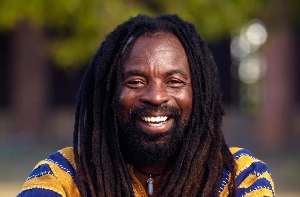Members of socially excluded groups in the Gushegu Municipality of the Northern Region have given the Assembly a mixed score in terms of its performance in the delivery of various social services to them.
The socially excluded groups gave the scores on issues of concern to them, which included transparency in the disbursement of the disability fund, job opportunities for persons with disabilities (PWDs), Assembly’s effort in making public buildings disability friendly and PWDs participation in the Livelihood Empowerment Against Poverty (LEAP) programme.
Persons with disabilities (PWDs), Fulanis, and women and youth groups constitute the socially excluded groups, and they gave the assessment when they interacted with key officers of the Assembly at Gushegu.
This community scorecard process was facilitated by the Regional Advisory Information and Network Systems, an NGO, as part of its Enhancing Social Inclusion in Local Governance (ESILG) project with funding support from STAR Ghana Foundation.
The ESILG project, which is being implemented at Gushegu, and West Mamprusi Municipalities, seeks to build capacity of the socially excluded groups, facilitate their participation in local governance activities, and promote social accountability and movement building.
In the area of transparency in the management of the disability fund, the groups scored the Assembly ‘fair’ with the explanation that those representing them in the Assembly did not relay information about the fund to them.
On creating job opportunities for the PWDs and making public buildings disability-friendly, the groups scored the Assembly ‘poor’ and ‘fair’ saying a lot needed to be done to improve the situation.
They however scored their participation in the LEAP ‘good’.
On their part, the Fulani group scored the Assembly’s efforts in getting potable water and electricity to the Fulani community at Gushegu, and fighting bush burning ‘poor’ and ‘very poor’.
The Fulani group lamented that discrimination against Fulanis was very high in the area despite the fact that even the adults among them were born in the area and had lived with the people for several decades.
Women in the area were more concerned about the Assembly’s support for women in farming and engaging in alternative livelihood activities, their participation in local governance and decision-making at the district level and provision of toilet facilities for households in the Municipality.
They, therefore, scored the Assembly ‘poor’ saying it was not doing much to improve on those services.
The youth group scored the Assembly ‘fair’ saying the fact that a number of them had been recruited under the Nation Builders Corps including benefiting from fertilizer subsidies showed that the Assembly was doing quite better.
Mr Fuseini Karim, Assistant Director at Gushegu Municipal Assembly assured the groups that the Assembly would work to improve service delivery as well as engage them more in its activities to empower them to make their voices heard in the Assembly’s development process.
Regional News of Tuesday, 21 May 2019
Source: GNA

















